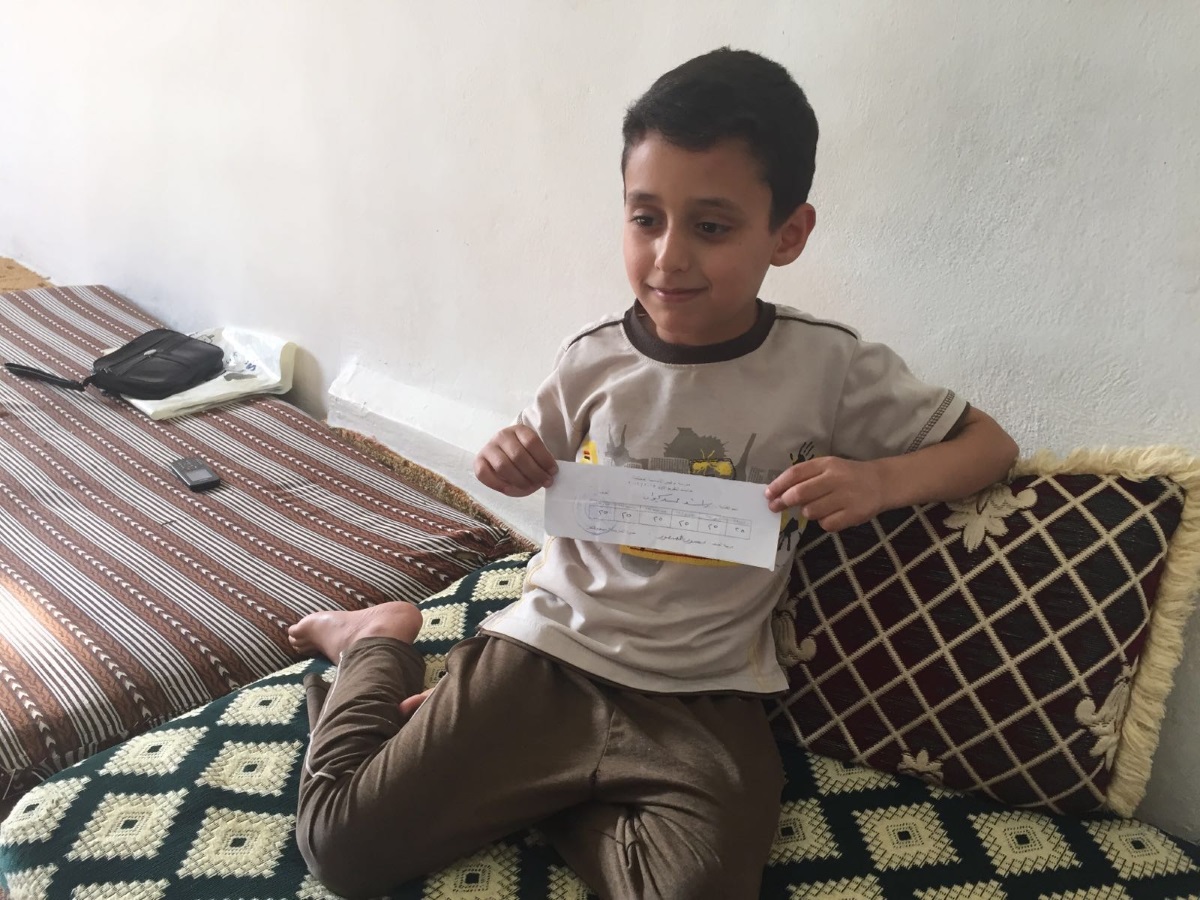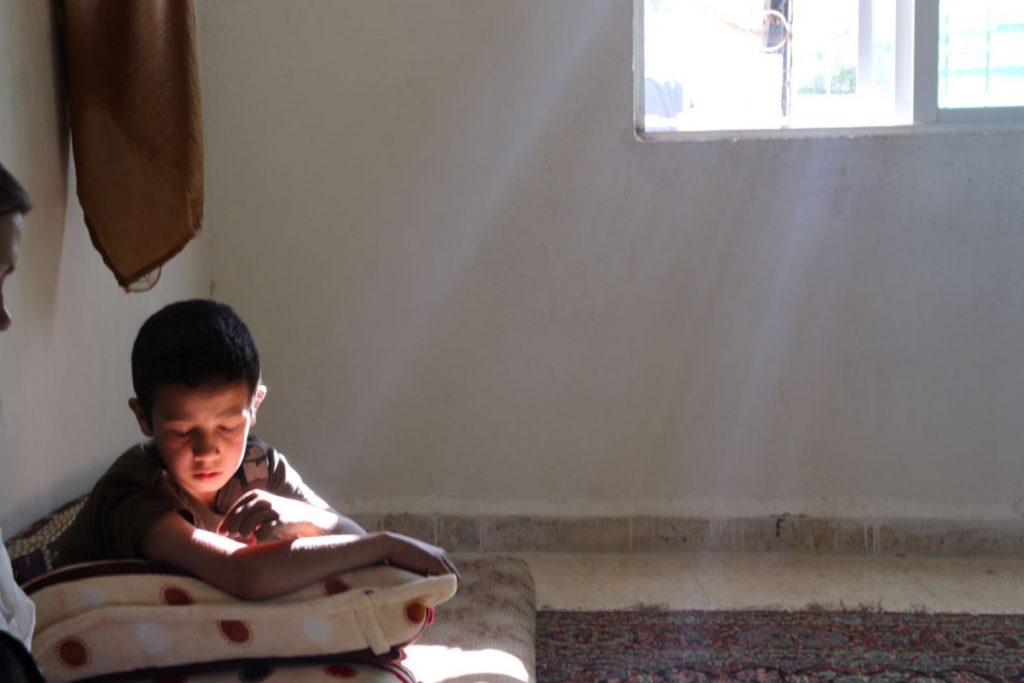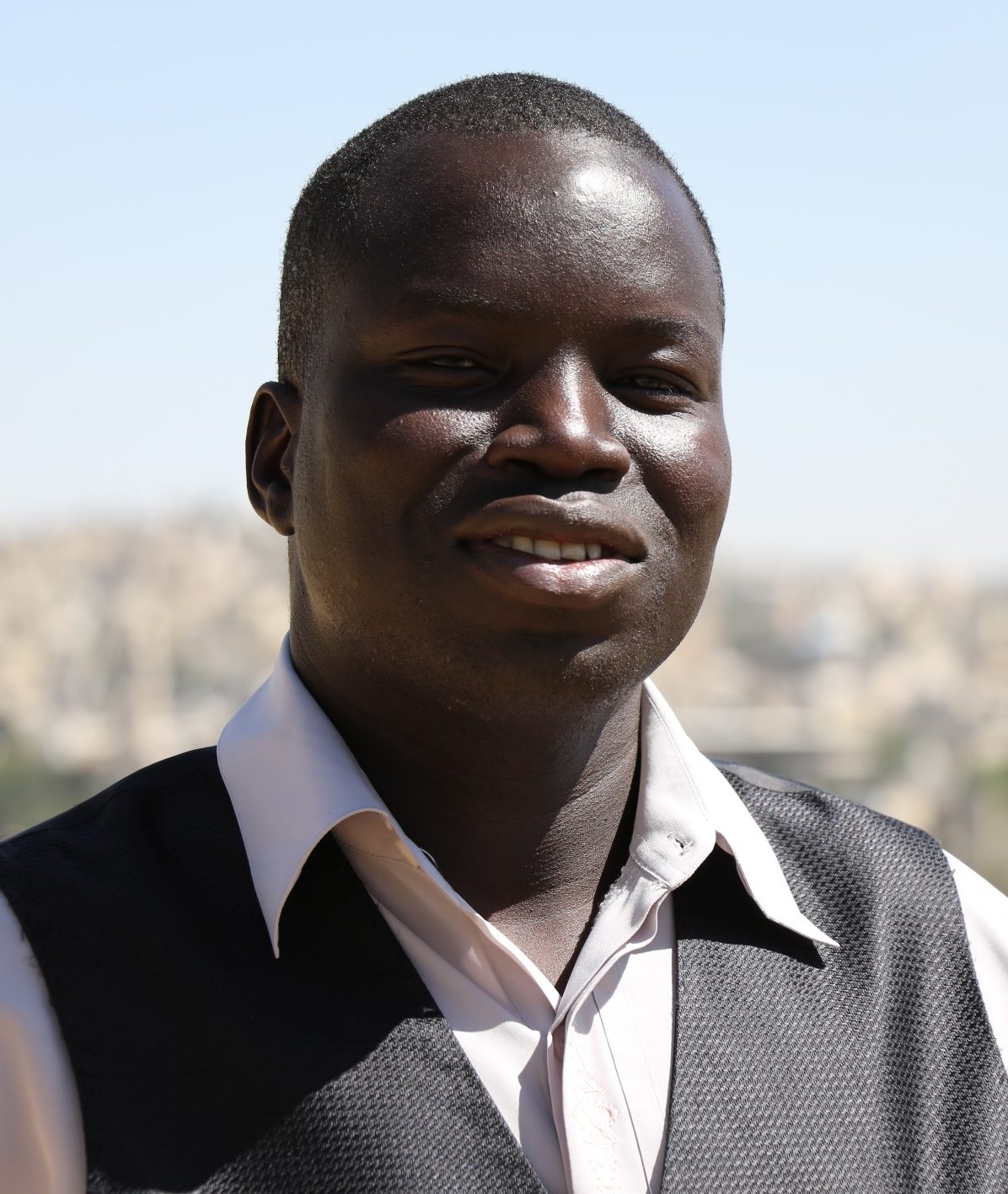Lost Boy Meets Survivors of current Global Refugee Crisis
This year we set out to better understand the global refugee crisis through refugee eyes, to see what’s happening firsthand. So over the past few months, ARC teams went and spoke with more than 500 people – all of them refugees – in places like Jordan, Turkey, Germany, Greece, Uganda, and Kenya. Welcomed into their homes and their lives, we listened to everything they had to say. ARC staff went on this journey, but we also invited others outside the industry, people whose could offer a distinct perspective. One of those people was David Acuoth, who we were lucky to have on our team in Jordan. David is a former Lost Boy of Sudan who is now a U.S. Congressional Staffer. Below you’ll find a recent conversation between David and Daniel Wordsworth, ARC’s President, about his experiences speaking with Syrian refugees in Jordan – and why it was so powerful.
Q&A: DAVID ACUOTH
Daniel: To start, why were you interested in going on this trip to Jordan with ARC?
David: Well, I was really interested because I wanted to see first-hand why people are making the dangerous trip to Europe, even though in the back of my mind I knew why – I was in their shoes not so long ago. When people have nothing, you have nothing to lose. I had been following the news and watching TV reports, but this was an opportunity to speak to people directly. And, since I’ve been a refugee myself and I continue to work on refugee issues, this was important to me.
Daniel: Would you mind telling me a little more about your journey as a refugee?
David: The journey really began when I was four years old, in the late 1980s when my village was attacked. I became an orphan, and witnessed things I would rather not remember. I was terrified and ran into the forest and hid there for days on end, hoping that my family would come and find me. Eventually, I made my way to a refugee camp in Kenya, called Kakuma. I ended up spending nearly 20 years there. But my luck changed when I got the opportunity to come to the U.S. as part of the Lost Boys and Girls Resettlement Program. This was really a turning point for me. I lived and went to school in Minnesota – I got my master’s degree at St. Mary’s University. And now I live in Washington D.C.

Mohammed with his report card
Daniel: You have quite a lot of experience with refugees and the refugee experience. Traveling with us on this trip, what was the most surprising thing that you learned?
David: Actually, it was quite a learning experience. There were really three things that made an overall impression on me, the first of them being the idea that people are opting out of the traditional refugee process that I went through. They’re choosing not to live in refugee camps, and they’re living with everyday Jordanian citizens instead, in the case of Jordan specifically. For them, the conditions in the refugee camps are actually unacceptable – 500 people to one bathroom, things like that.
The second thing is something that is very personal to me – the power of education. I know from my own life how important the chance at an education is. That’s why, when I met a 10 year old boy named Mohammed in Jordan, I wanted to do something to help him. He gets straight A’s, but when he goes to sleep, nightmares from the war in Syria keep him awake. I felt for him, because I experienced the same. I offered to pay for one year of school for Mohammed. I feel more than ever before – in light of the global refugee crisis – that getting an education is important for everyone around the world.
Daniel: And what was the third thing that left an impression on you?
David: I had originally underestimated the connection between myself and my own story, and the people we met. But when I told people my story, and how I was once in their shoes, something actually incredible happened. People were losing hope, but I reminded them that all was not lost, that they could still have a future. Their children could still have a future, a good one. I never thought that would happen for me, but it did. This was a gift for them.
Daniel: Yes, wow. Can you tell me more about that? How did people react when they learned you were once a refugee, like them?
It really was a gift. Definitely, without question, it inspired hope. This one man I met stands out in my mind as evidence. He had completely given up hope. When we were talking to him, every statement he made was so negative, all about how the future was lost, how Syria was lost to him. I asked him, what do you tell your children? He said that he tells his boys that there was no more Syria, that they were finished. I said to him, here’s my story. I’m a refugee that educated myself and gained a successful career. If I can make it, why are you telling your children that they have no future? Something was moved in him. He started crying, and he apologized. He called his sons into the room one by one and he told them – the future is not lost, we know that there are people who care about us. It was amazing to me that this experience that I had, when I was in a very dark place, can now help someone else get out of that dark place. This moment doesn’t have to define the rest of their lives.

Sun streams into one of the homes shared by a group of Syrian refugees
Daniel: To me, it seems like there is a lot of darkness around this crisis. But there are bright spots too. What bright spots did you see in Jordan?
David: Yes, there are definitely bright spots. Jordanians have opened their houses and adopted Syrian families, they’re staying in Jordanian homes. That’s a bright spot. And, some of the volunteers we met were inspiring – people have come from all over the world to help. One interesting thing to see was that some of the refugees living in rural communities are actually doing better, because of farming. We also met one woman who owns a clothing store. She left Syria three years ago and now owns a store where she makes clothes, souvenirs, and other things. This was a common theme – a lot of refugees want to start a business, like they did before in Syria. The bright spot there is that people are saying they aren’t going to sit around and wait for Syria to be a better place – they want to make their lives better now.
Daniel: What is the takeaway from this for you? How has this experienced the way you look at this crisis and your life back in the U.S.?
David: I am constantly thinking about the people I met. And, how we can better serve refugees. There has to be a different way. My connection to these people was really powerful – so can we engage more former refugees in a new solution? How can we use the resources already available to us?
The biggest takeaway from this trip is that we need to rethink how we do things. How we help refugees. My experience speaking with Syrian refugees was so powerful because I felt what they felt. I was a real person who had experienced these same things talking to a real person who is in the middle of their own crisis. People saw that, and they knew that my compassion wasn’t empty. But I think, even if you’re not a former refugee yourself, if you try to really get to know the person, truly listen to their story, try to feel what they feel, it means so much.
